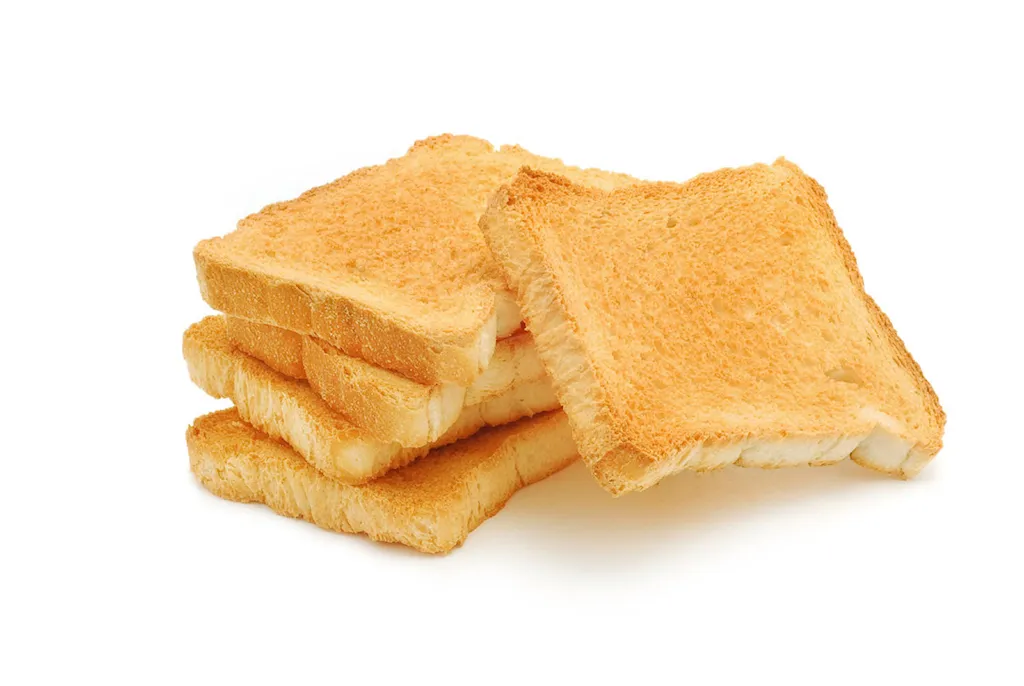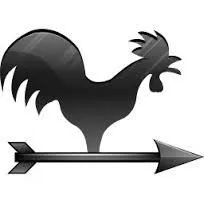Hello everyone,
I am type 1 diabetic and a nutritionist has told me to avoid toast, but I don't know why, since they have the same calories (I need to gain weight).
I thought that something roasted up the sugar, but another nutritionist told me to consume them without problem and on the Internet I can't find anything about it.
Is there any nutritional difference whether or not you are?
Thank you!
No signature configured, add it on your user's profile.
If you take a slice of bread, for example, two rations and the tute, you will have a two -serving toast.No difference.
Another thing is that, equal to grams, normal bread has a less hydrates, simply because the toast has less water and the weight is, so to speak, more concentrated, although the differences are minimal.
In any case, I speak of normal bread.Perhaps to what your nutritionist refers to use bimbo or similar bread toas, which carry sugars, fats and less healthy additives.
But if you need to gain weight, it seems to me a sovereign stupidity that toasts.
Health
No signature configured, add it on your user's profile.
The best thing about roasted bread is that you can't wet it in the sauces: Mrgreen:
Well you can but nothing is left for salsa:-/
As Alea says, not carrying water the feeling of satiety is greater because the body immediately asks you to drink
As for carbohydrates is the same, it depends on the type of bread (rye, white, soy, integral ...) will have slight variations
As for Kcal, because the same
In both cases, everything depends on the amount you eat, obviously.
No signature configured, add it on your user's profile.
Toasted bread has greater glycemic index
No signature configured, add it on your user's profile.
The bread I suppose that you know that it has every 20 free of bread, a ration, that is, each ration is equivalent to 10 sneakers.
I put that that you know.
We make carbohydrates in rations and each ration is the equivalent of 10 free sugars.
Therefore the bread if you weigh the one you eat already know what percentage of hydrates you have in your diet.
Another thing if the bread you have, first you weigh it and then you have it because it loses weight when toasting it.
If you buy toasted bread on the label, it puts the carbohydrates per 100 grams.You just have to make the account to know how many rations you have to take.
If, for example, it puts 55 free of hydrates per 100 grams of bread.You know that if you eat 100GRAMOS they are 5 and a half rations.
all the best
No signature configured, add it on your user's profile.
Superman, it is true that when toasting it increases the glycemic index, because starch breaks down into glucose molecules (the same thing happens as corn and popcorn) but, in 20 g of bread, this is barely noticeable, and you can eatWith all tranquility.:)
Hija de 35 años , diabética desde los 5. Glico: normalmente de 6 , pero 6,7 la última ( 6,2 marcaba el Free)
Fiasp: 4- 4- 3 Toujeo: 20
The bread supposes that you will know that it has every 20 grams of bread, a ration, that is to say each ration equals 10gms of sugar.
I put that that you know.
We make carbohydrates in rations and each ration is the equivalent of 10 free sugars.
Therefore the bread if you weigh the one you eat already know what percentage of hydrates you have in your diet.
Another thing if the bread you have, first you weigh it and then you have it because it loses weight when toasting it.
If you buy toasted bread on the label, it puts the carbohydrates per 100 grams.You just have to make the account to know how many rations you have to take.
If, for example, it puts 55 free of hydrates per 100 grams of bread.You know that if you eat 100GRAMOS they are 5 and a half rations.
GREETING
To my m taught that the hydrates in nutritional information and according to how much do I put it but honestly 1 miñon of normal white bread how many hydrates do you have?
No signature configured, add it on your user's profile.
What loko everything that is learned with a simple question 0.0 .. and x example how much you have to have at 2 hours of having eaten .. be pastes or churrazco with salad? xq I do not use quickly it is etaBut m have said many that have to use fast at meals to improve glucose ... and tmb when I awake suppose I wake up with 150 ny I have to eat 20 hydrates m I put 3 fast units but that is at 6:30 dTomorrow and the daily I put it at 11 until I do the daily I don't lower my sugar because?
No signature configured, add it on your user's profile.
If you do not use fast you will be type2 ..
Hija de 35 años , diabética desde los 5. Glico: normalmente de 6 , pero 6,7 la última ( 6,2 marcaba el Free)
Fiasp: 4- 4- 3 Toujeo: 20
@Geminis247 I wanted to put a link of a Roche food guide that was great, it is very visual to make calculations and comparative food, types of breads ... etc but it is a PDF and I am not able to attach it.I attach Link of the search I did on Google in case it serves you.It is the first PDF search result
Link
Conviviendo con la diabetes desde 1986
Aviva Combo Junio 2015
Freestyle Enero 2016
Dexcom g4 Octubre 2016
Ultima Hb1ac 5,7
Hello, I have the bread and always get on more than 200
No signature configured, add it on your user's profile.
@Juani_53, if you get on more than 200, get faster, right?
Hija de 35 años , diabética desde los 5. Glico: normalmente de 6 , pero 6,7 la última ( 6,2 marcaba el Free)
Fiasp: 4- 4- 3 Toujeo: 20
regina said:
@Juani_53, if you get on more than 200, put faster, no?
>
I don't wear anything, I wait for me to get out, the fast just put it after lunch
No signature configured, add it on your user's profile.
Aure
08/26/2016 1:48 a.m.
Hello everyone !!!!
I just read the conversations of this issue and what @superman1 said that toasted bread has a greater glycemic index, my question is the integral too?
On one occasion I read an article and that I do not remember where it went, but said that you have to be careful with those products that in its content list says "wheat flour" and in its packaging it says that it is integral, that to these types ofProducts to be integral must say in the content list "whole wheat flour", that if not, it is not integral, what do you know about it?Because I have realized that there are products that say in the 2 ways.
Greetings.
No signature configured, add it on your user's profile.
No signature configured, add it on your user's profile.
Juani_53 said:
regina said:
@Juani_53, if you get on more than 200, put faster, no?
I don't wear anything, I wait for me to get out, the fast just put it after lunch
You lower the glucose alone, without the need for unan correction with rapid insulin?At any time of the day ??
How long do you put ???
30 años. Diabetes tipo 1 desde los 10
Medtronic Minimed 640g
NovoRapid
hA1c: 6%
Sensor Enlite
@Aure so that it really has to say integral flour.If you say wheat flour and it is not integral.In those cases they add white flour and then saved and the effect is the same as that of the target because when the body is separated, the flour digits equally fast as in the non -integral.It is a way of deceiving people who use the industry.I read it allows you to do these things and take advantage because today the white flour and the savior separately get cheaper than together because most of the refine flour.
DM1 desde 2003 | Toujeo + Humalog | FreeStyle 2 | HbA1c 5.5
Aure
11/13/2017 10:16 p.m.
Hello @yessica_a, how are you.Thanks for Respoderl !!!
So it is a hoax that says "whole wheat flour" in its content.Do you know or know someone what brand of products is really integral?
Greetings.
No signature configured, add it on your user's profile.
Sorry @"aure" that the previous comment was written from my mobile and I see that I change some word and not well understood.
If you say integral wheat flour if it is integral.When it is not comprehensive, it is when it puts only wheat flour (if it does not specify integral it is refined) and they add bran to be able to put that it is integral although it really is not.Integral flour is not the same as the refined + bran.A good bread should only carry in the ingredients integral flour of the cereal that is, yeast (better if it is a mother but yeast is not bad either) and salt.It is also fine if they add seeds or nuts but do not carry preservatives or additives.
Of those who sell in supermarkets it is difficult for them to be good.The best is one of bakery in which they do it and they know how to say.
DM1 desde 2003 | Toujeo + Humalog | FreeStyle 2 | HbA1c 5.5






